Is My Kid Ready for Kindergarten? Kindergarten Readiness Checklist
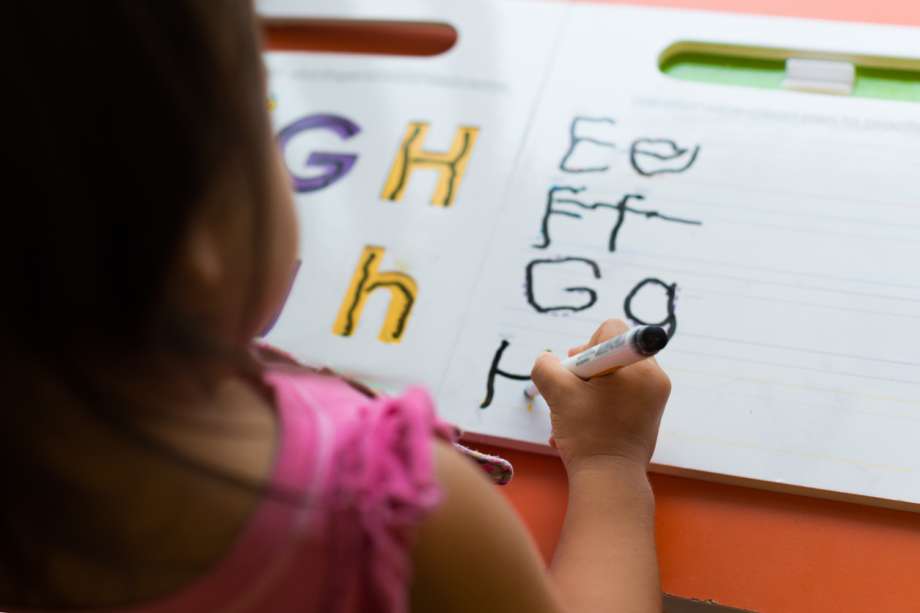
While there's no perfect formula that determines when children are ready for kindergarten, you can use this checklist below to see how well your child is acquiring the skills found on most kindergarten checklists.
Check the skills your child has mastered. Then recheck every month to see what additional skills your child can accomplish easily.
Young children change so fast — if they can't do something this week, they may be able to do it a few weeks later.
Keep in mind all children are different and develop are different paces. Some of these kindergarten skills your child may master as young as three or four other skills they may not achieve until closer to first grade.
Free Checklist Download: Kindergarten Readiness Checklist
However, if your child has acquired most of the skills on this checklist and will be at least five years old by the summer before starting kindergarten, they are probably ready for kindergarten.
Social-Emotional Skills to Know Before Kindergarten
Social-Emotional skills are the crux of kindergarten readiness. If a child is not emotionally secure and able to interact socially, they cannot learn effectively.
- Interacts with peers, plays in small groups
- Participates in conversations and group discussions
- Shares toys (most of the time)
- Uses words (not hands or biting) to solve social problems
- Expresses when they are upset and why
- Can (usually) handle strong emotions appropriately
- Able to follow simple directions
- Able to separate from parents with little to no distress
- Can delay gratification (wait their turn for a toy or wait in line)
- Able to function in new situations
- Can pay attention to a short story time or circle activity
- Can complete simple self-care tasks like getting dressed and washing hands
- Uses the bathroom independently (occasional accidents are normal)
- Get dressed
- Wash hands
Literacy & Language Skills to Know Before Kindergarten
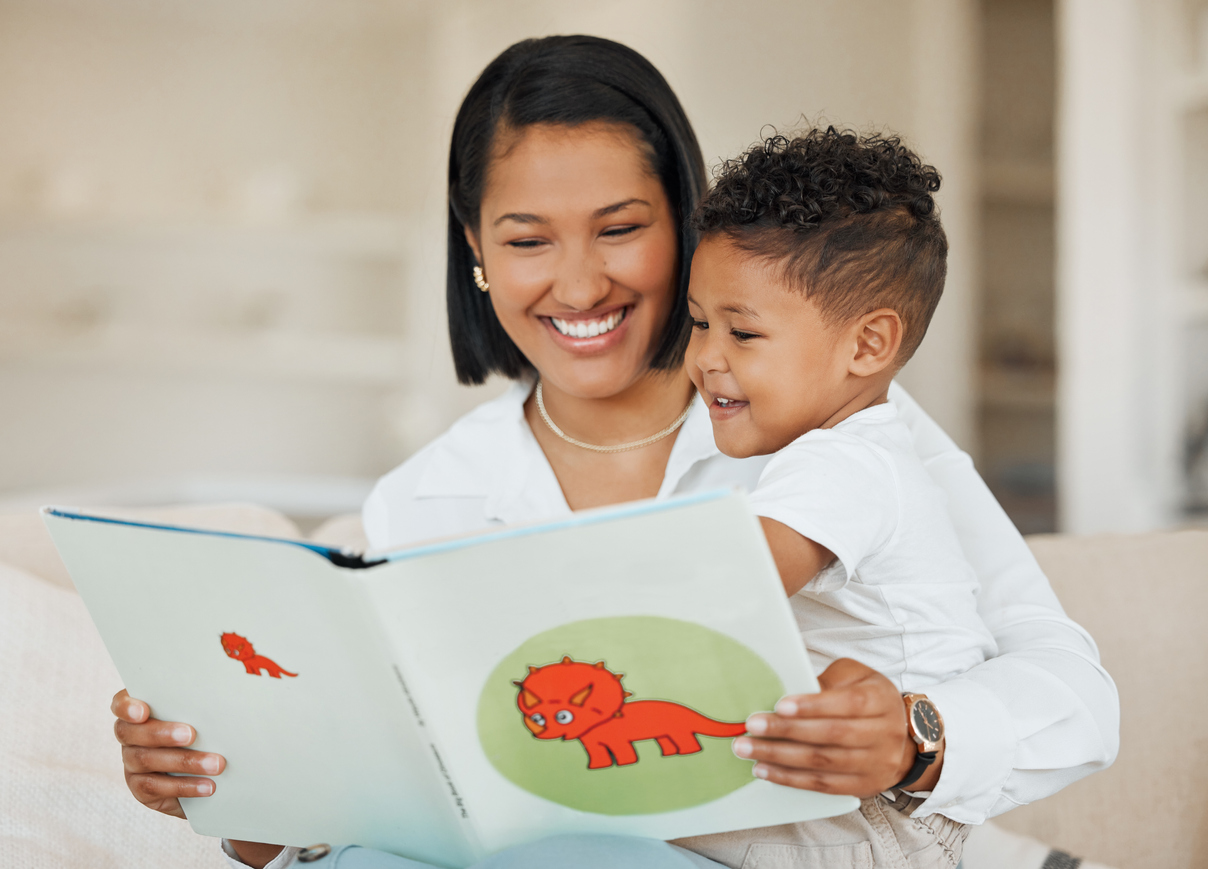
Literacy and language skills your child needs to know before kindergarten revolve around letter and sound recognition, interactions with books, and the ability to communicate their needs and wants. A child entering kindergarten does not need to know how to read. Nor do they need to know all their letters (although most will).
- Recognize most or all upper-case letters of the alphabet
- Recognize some or most lower-case letters of the alphabet
- Recognize and produce rhyming words, create rhymes, and recite familiar nursery rhymes
- Recognize their full name with written
- Able to write their first name
- Recognize and produce most or all letter sounds
- Hold books correctly
- Re-tell familiar stories
- Engage in conversations of 3-4 exchanges
Cognitive & Math Skills to Know Before Kindergarten
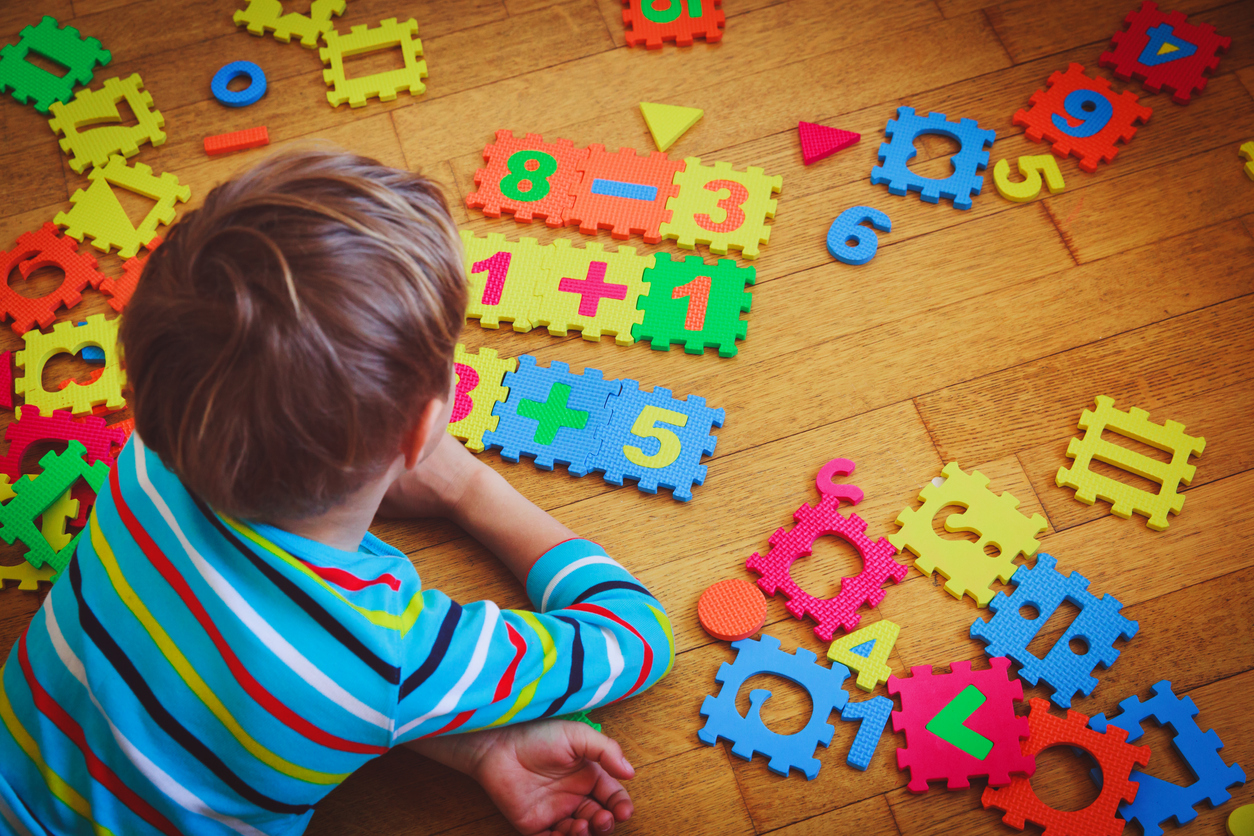
Cognitive and math skills include numbers, problem-solving, critical thinking, shapes, and colors. Like letters, children should be able to recognize and count to a specific level and name certain colors and shapes.
- Count 1-10 or count to 20 but may skip a number or two
- Recognize a small set of objects instantly ( two or three items)
- Recognize and name basic shapes (square, circle, triangle, star, etc.)
- Recognize and name common colors (red, blue, green, yellow, etc.)
- Able to complete simple puzzles
- Recognize familiar signs or logos like popular stores and restaurants, stop signs, exit signs, etc.
- Solve simple problems (how to fix a block tower that falls, navigate around something in their path, etc.)
Physical Skills to Have Before Kindergarten

- Hold a pencil with a 3-finger grip (check if pencil grip is too high or too low)
- Use scissors
- Draw straight lines and recognizable images
- Pedal a tricycle
- Hop on one foot
- Run, skip, gallop, and hop
- Button or zipper clothing
- Use utensils
What If My 5-Year-Old Is Not Ready for Kindergarten?
If your five-year-old is not ready for kindergarten, it is OK! There is nothing to feel embarrassed or ashamed about, and you did not do anything wrong as a parent. Some children simply aren’t ready and can benefit from a second year of pre-K.
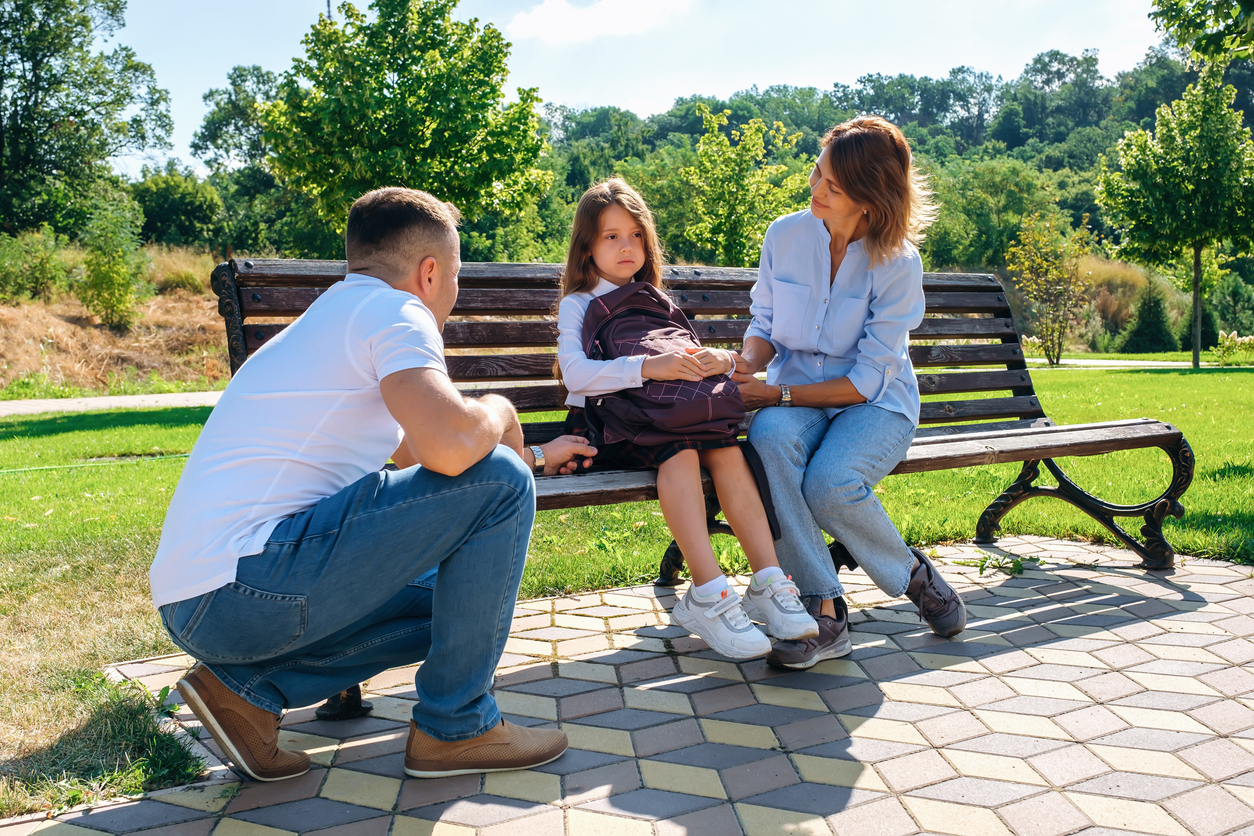
Children can enter kindergarten without mastering the alphabet, holding a pencil correctly, or knowing how to tie their shoes. During my 12 years teaching pre-K, I only recommended that parents hold their child back a year when they weren’t ready socially or emotionally.
I can tell you from personal experience a second year of pre-K can make a world of difference in a child’s life, providing them with the confidence and independence they need to start Kindergarten with a bang.
We decided to repeat Pre-K for my son, who has a late spring birthday. Academically he was fine; he was better than fine, but socially and emotionally, he wasn’t there yet, and we knew throwing him into Kindergarten before he was ready would likely not end well.
Parents worry that their child needing a second year of pre-K or repeating kindergarten is somehow a failure, but I assure you it is not. Now in the middle of fifth grade, he is confident, funny, social, and makes the honor roll! I personally did two years of kindergarten and thank my mom all the time for that decision.
I was in the same boat as my son; academically, I was A-Ok, but I needed another year to mature emotionally. I performed well in school and college and went on to earn a master’s degree.
Signs Your Child Isn't Ready for Kindergarten
- They have trouble sitting still or participating in group events like story time.
- They struggle to follow one and two-step directions
- They struggle with social skills like sharing, making friends, and playing with other children
- They are rarely able to control their emotions or express themselves in intense or upsetting situations
- They cannot recognize their own name when written
- They cannot name any letters or numbers or recognize them
- They struggle with shape and color recognition
- They are not fully potty-trained (occasional accidents are ok and expected)
- They suffer from extreme separation anxiety
- They are unable to speak in complete sentences
- They can only draw scribbles
You’ll notice that most of the above signs are not academic skills. That’s because there is no correlation between intelligence or parenting skills and whether or not a child is ready for Pre-K.
Research shows that most children who enter kindergarten slightly behind academically catch up to their peers by second grade. However, if a child starts Kindergarten lacking essential social and emotional skills, they will struggle to learn, are more likely to face behavioral problems, and struggle academically.
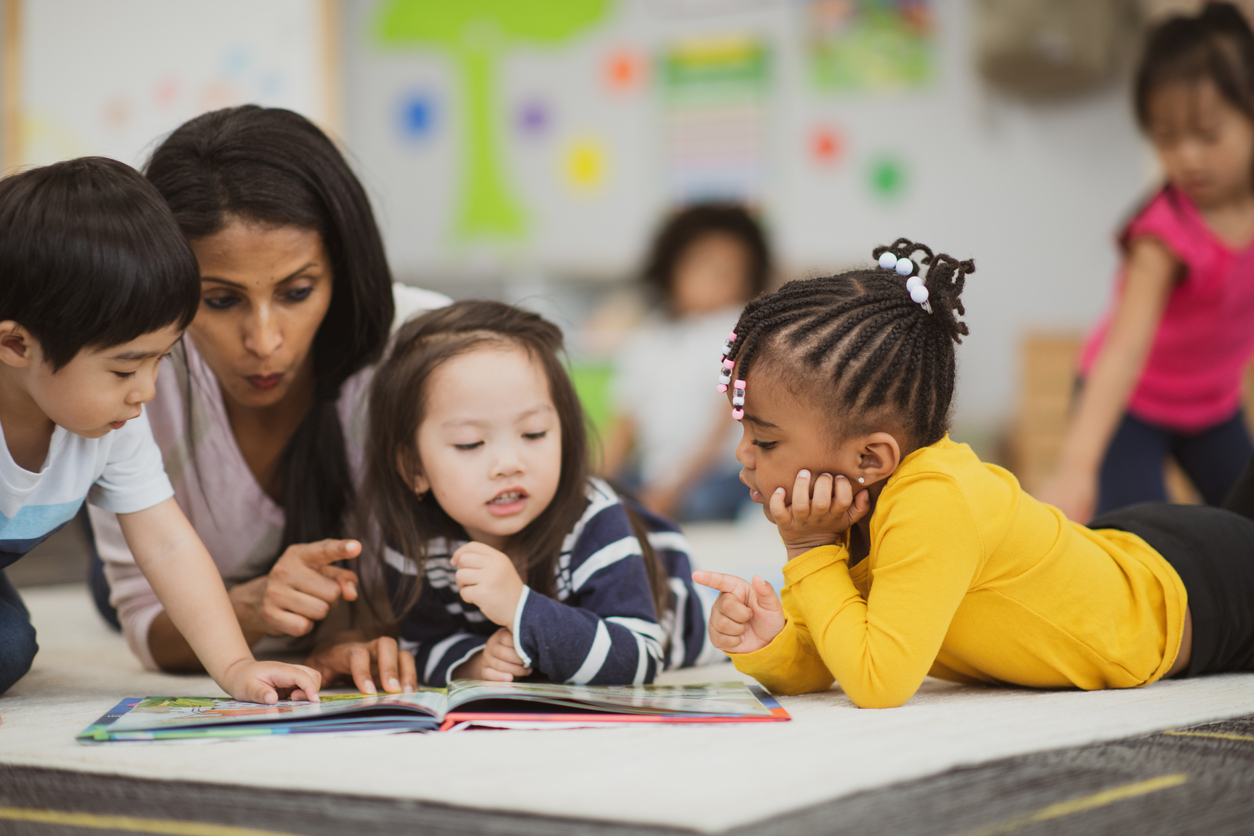
It also increases the chances your child will fail and potentially be held back later in their schooling. This can lead to embarrassment for the child and detrimental feelings of self-worth.
Unfortunately, some children fall way behind academically, particularly those in poor neighborhoods who lack access to quality child care or pre-K. These children may struggle to catch up to their peers academically, but there are things parents and caregivers can do to close the gap before Kindergarten.
Closing the Kindergarten Gap
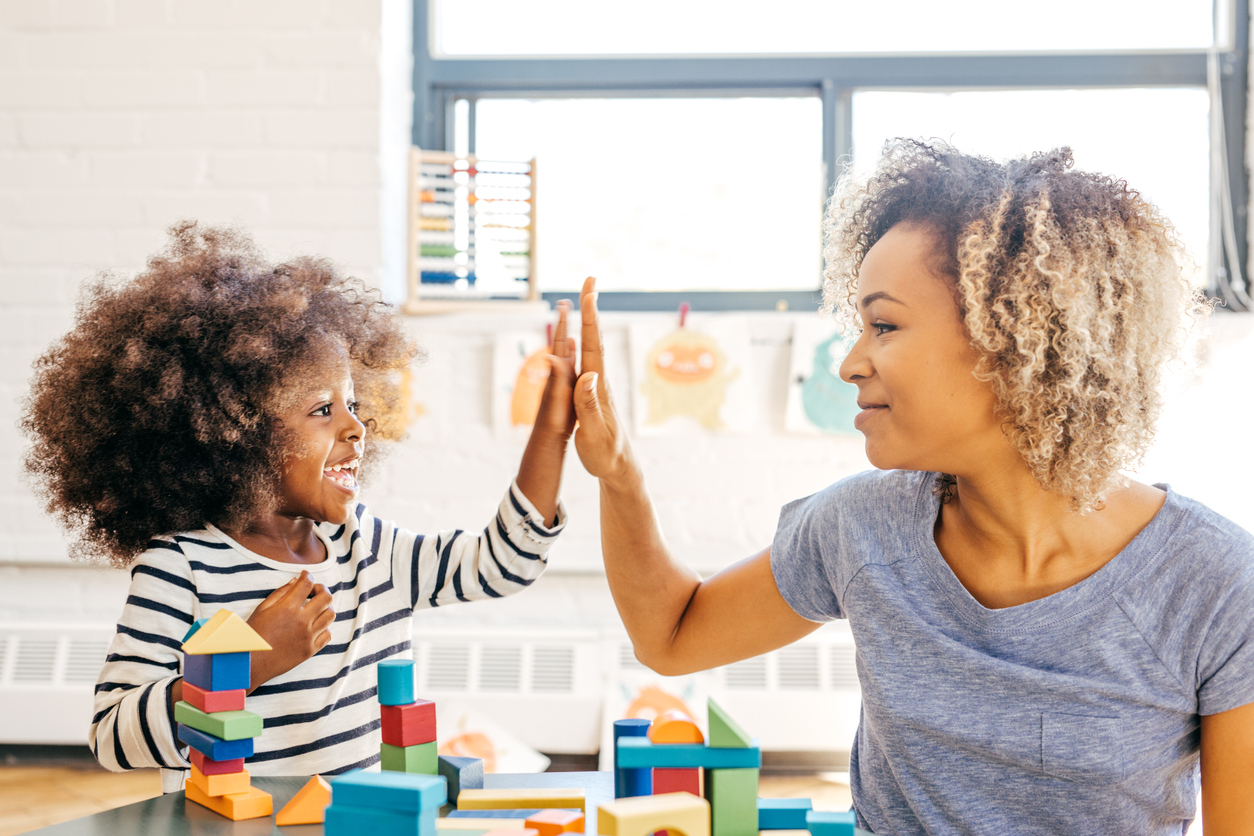
There are some ways for parents to improve their toddler’s academic skills and emotional development. It’s important parents engage young kids in conversations, encourage their curiosity and do things that stimulate their brains like reading stories or playing music together. Here are some simple ways for parents to help close the kindergarten gap.
- Read to your child daily for a minimum of 10 minutes
- Talk to them and engage them in conversation with open-ended questions
- Arrange playdates or take them to the local park or playground to interact with peers
- Engage them in pretend play and retell or act out their favorite stories
- Play rhyming and letter recognition games with environmental print
- Practice counting things in daily life (how many cars you see, how many dolls they have, etc.)
- Promote fine motor skills
- Playdough
- Safety scissors
- LEGOS
- Fat crayons and pencils
You know your child best, so if you are on the fence, speak with their pre-K teacher. Ask for an honest assessment, and be prepared to hear that your child could benefit from staying back a year.
To understand if your child is at the right level to begin kindergarten, get our downloadable Kindergarten Readiness Checklist to keep track of your child’s mastery of their own emotional, social and academic development.

